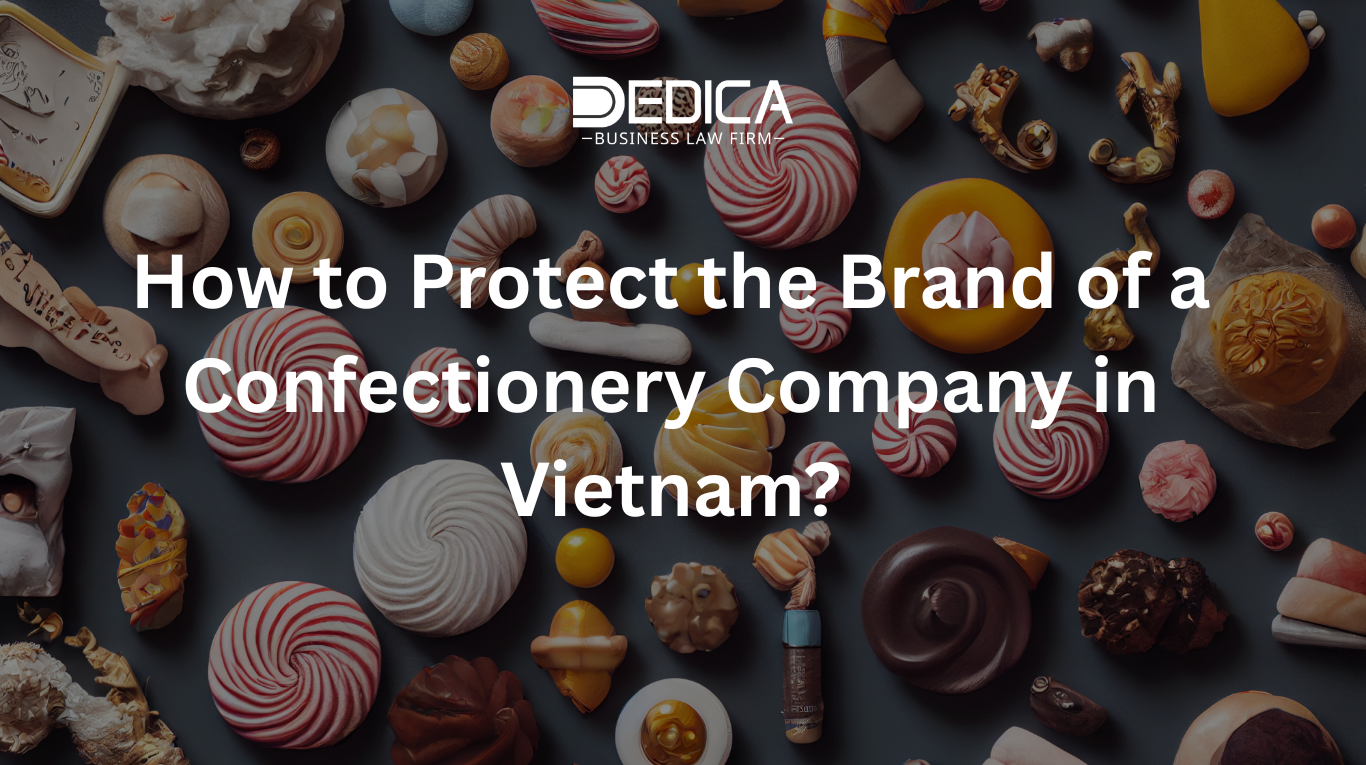No table of contents available

In the confectionery industry, where creativity and brand personality are vital factors, building and protecting a brand is not just a choice but a prerequisite for the company to survive and develop sustainably. With the increasingly fierce competitive environment and increasingly intelligent consumers, a good name and beautiful packaging are not enough. Brands need to be legally protected to prevent risks of plagiarism, counterfeiting, counterfeiting and intellectual property disputes.
A brand is an intangible asset but has enormous value for businesses. For confectionery businesses, where recognition from packaging color, product name to slogan can all become sales advantages, protecting the brand early will help the company:
Prevent copying of ideas, packaging, and brands from competitors;
Create a solid legal basis when disputes arise;
Easily develop franchises, expand domestic and foreign markets;
Increase business value when calling for capital, selling shares or conducting an IPO.
However, reality shows that many small businesses or startups in this industry often skip this important step because they think "it's okay to leave it later". When a dispute arises, they frantically register for protection, by which time it is often too late.
To build and protect brands effectively, businesses need to implement both creative and legal strategies simultaneously. Below are important steps that you should not skip.
This is the first and mandatory step if you want to protect your brand legally in Vietnam. Registration should be done early, as soon as you have an idea for a name and design a logo or slogan for the product.
The trademark must not be identical or confusing with a previously registered trademark;
You should look up the possibility of registration before submitting your application;
Trademarks can be registered for both company names, product names, packaging images, and slogans;
In the confectionery industry, not only brands but packaging, representative images, and special product shapes (for example, heart-shaped cakes, bear-shaped cakes...) can all be protected as industrial designs or copyrights if creative and unique are met.
In addition, if your company owns a proprietary baking recipe (for example, sugar-free marshmallow recipe, low-fat cookies for dieters...), you may consider applying for trade secret protection under the Intellectual Property Law.
Once you have a protection certificate, the next step ismarket monitoringto detect and promptly handle infringements.
Register your brand with e-commerce platforms and supermarket chains to prevent counterfeit goods.
Monitor social networks and specialized groups to detect products showing signs of copying.
When a violation is discovered, the following steps should be followed: send a warning letter, request termination, and, when necessary, file a lawsuit or request administrative sanctions.
In many cases, businesses acting early and decisively have helped protect their reputation, retain customers and prevent serious financial consequences.

If a confectionery company plans to export, especially into large markets such as China, Japan, the EU or the United States, international trademark registration is mandatory.
You can register through the Madrid system or directly in each country. However, the process and costs are quite complicated, so it is best to be consulted by a team of lawyers who understand the field of international intellectual property.
A special point to note: in some countries like China, the principle of "first-to-file" is strictly applied, so if you do not register early, you can completely lose your trademark abroad, even if you are the owner in Vietnam.
Not only stopping at registration procedures, businesses need to think about brand protection as a long-term strategy:
Drafting strict contracts with processing and distribution partners to protect confidential information and trademark use rights;
Training employees and partners to identify brand risks;
Proactively check and update trademark protection status periodically;
Be careful when building advertising campaigns to avoid violating the intellectual property rights of others.
A common mistake is that businesses only think about protection when their house is on fire, when they are violated, when they are confused by customers, or when their partners "take over" the foreign market. At that time, the cost of overcoming it will be many times higher than the cost of investing in brand protection from the beginning.

At DEDICA, we not only support registration of trademark protection, industrial designs, and copyrights, but also accompany businesses in the entire process of building, developing and protecting brands, from domestic to international. DEDICA's team of lawyers and intellectual property experts has experience assisting many businesses in the food, beverage and fast-moving consumer goods (FMCG) industries to build comprehensive, economical and effective legal strategies for brand protection.
If you are in need of a solid, proactive and suitable brand protection solution for the confectionery industry, don't hesitate, take action today.
Contact DEDICA for advice on the brand protection strategy that best suits your business.
Hotline:(+84) 39 969 0012 (Support via WhatsApp, WeChat and Zalo)
Head office:144 Vo Van Tan Street, Xuan Hoa Ward, City. Ho Chi Minh (144 Vo Van Tan Street, Vo Thi Sau Ward, District 3, Ho Chi Minh City)
Business hours: Monday – Friday (8:30 – 18:00)
Contact us now to receive a free initial consultation from our team of professional lawyers!

Select a platform to view details